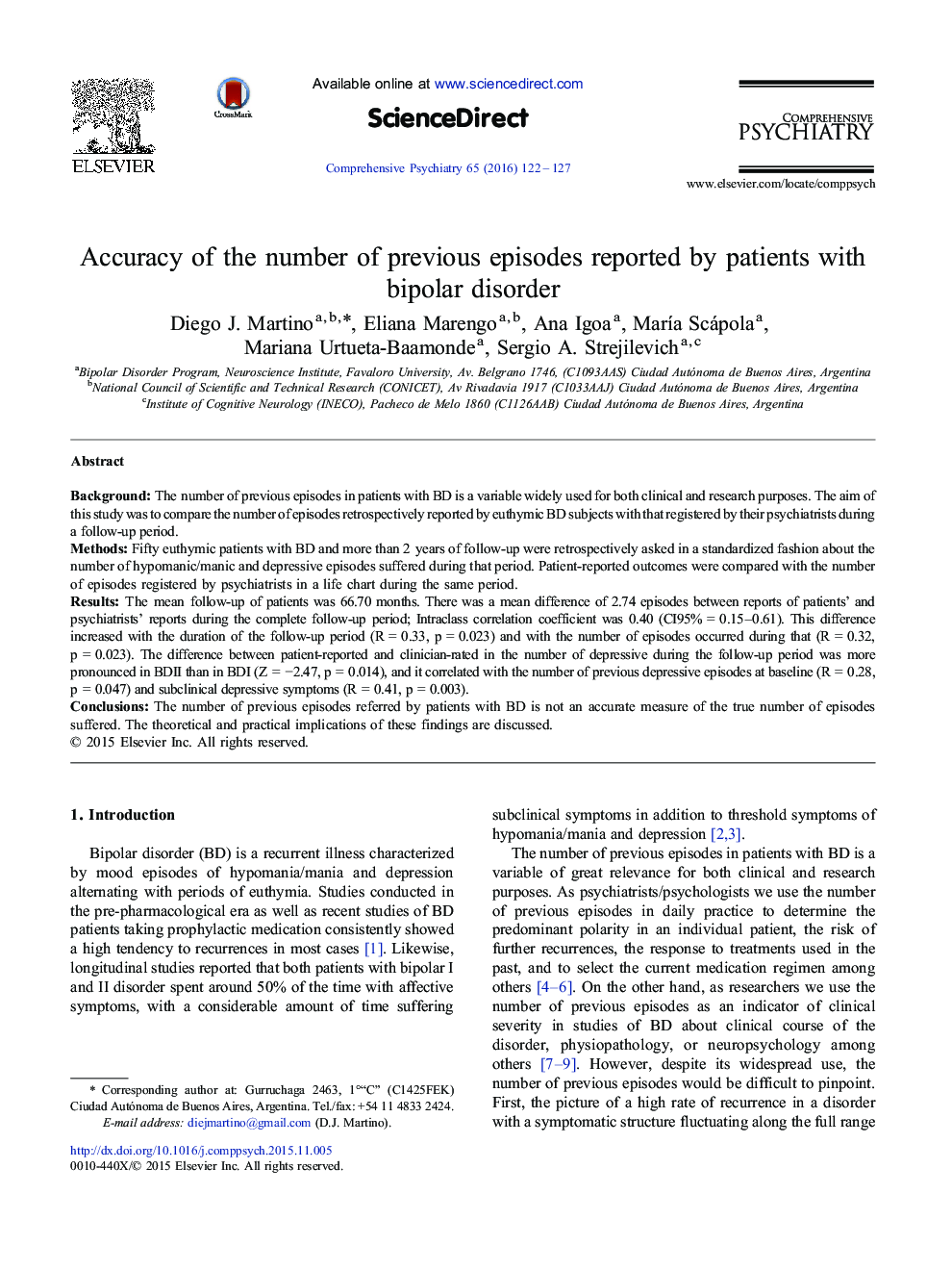| Article ID | Journal | Published Year | Pages | File Type |
|---|---|---|---|---|
| 317951 | Comprehensive Psychiatry | 2016 | 6 Pages |
BackgroundThe number of previous episodes in patients with BD is a variable widely used for both clinical and research purposes. The aim of this study was to compare the number of episodes retrospectively reported by euthymic BD subjects with that registered by their psychiatrists during a follow-up period.MethodsFifty euthymic patients with BD and more than 2 years of follow-up were retrospectively asked in a standardized fashion about the number of hypomanic/manic and depressive episodes suffered during that period. Patient-reported outcomes were compared with the number of episodes registered by psychiatrists in a life chart during the same period.ResultsThe mean follow-up of patients was 66.70 months. There was a mean difference of 2.74 episodes between reports of patients' and psychiatrists' reports during the complete follow-up period; Intraclass correlation coefficient was 0.40 (CI95% = 0.15–0.61). This difference increased with the duration of the follow-up period (R = 0.33, p = 0.023) and with the number of episodes occurred during that (R = 0.32, p = 0.023). The difference between patient-reported and clinician-rated in the number of depressive during the follow-up period was more pronounced in BDII than in BDI (Z = −2.47, p = 0.014), and it correlated with the number of previous depressive episodes at baseline (R = 0.28, p = 0.047) and subclinical depressive symptoms (R = 0.41, p = 0.003).ConclusionsThe number of previous episodes referred by patients with BD is not an accurate measure of the true number of episodes suffered. The theoretical and practical implications of these findings are discussed.
